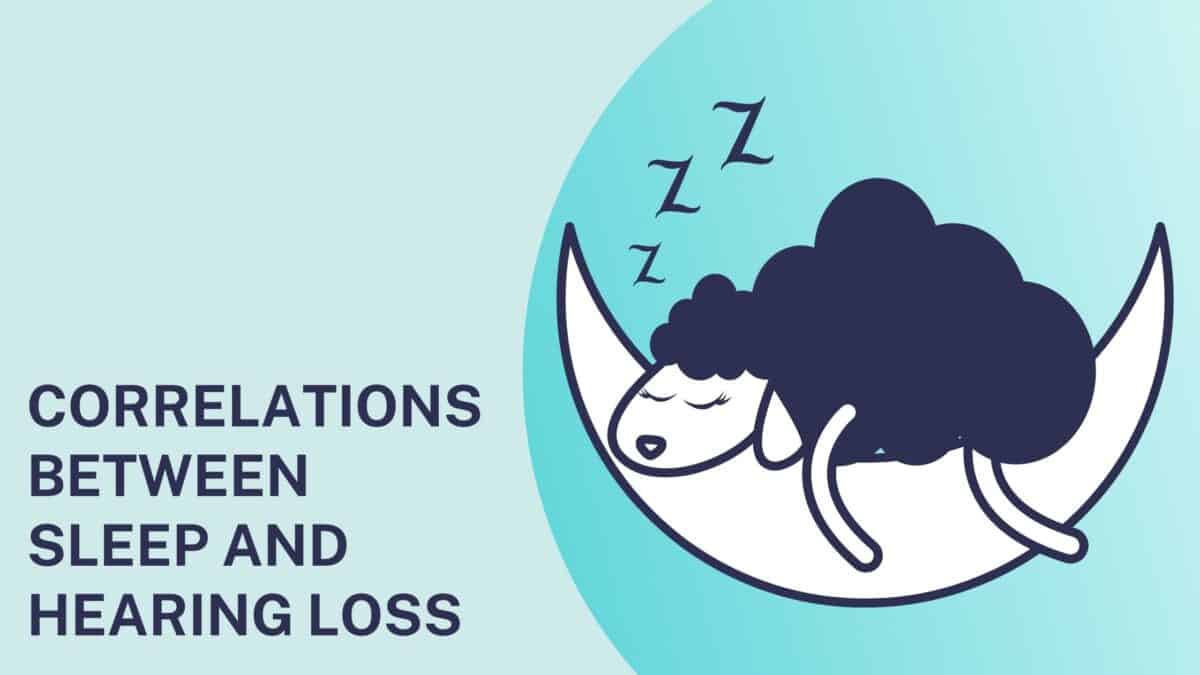When sleep comes easily, it may not appear to be a difficult task, but when you’re counting sheep, and you’re still awake night after night, sleep is a genuine challenge. A good night’s sleep is essential to our health, yet there can be a variety of reasons why sleep is difficult to come by.
Though the connection between sleep and hearing loss is not entirely understood, many scientists believe the connection is definitely real.
Sleep Problems and Hearing Loss
Although it may seem counterintuitive, people who are deaf or hard of hearing frequently have insomnia. According to studies, two-thirds of patients with hearing loss have insomnia. Psychological distress, according to scientists, could be one of the causes of sleep loss.
Insomnia and depression frequently coexist. One could be a contributing factor or a symptom of the other. Many hearing health practitioners believe that mood disorders may be one of the reasons for sleep problems because rates of depression are high among people who have acquired hearing loss.
Can Sleep Deprivation Cause Hearing Loss?
Given the link between sleep and hearing loss, it’s worth considering whether sleep disorders can cause hearing loss.
Obstructive sleep apnea and hearing loss have been linked in studies, albeit the specific explanation for this link is yet unknown. Sleep apnea occurs when a person repeatedly stops breathing for brief periods while sleeping. Around 40 million Americans suffer from sleep apnea, which can produce various symptoms. According to some researchers, blood flow to the inner ear is thought to be diminished when a person stops breathing. This could cause or contribute to hearing loss by producing or contributing to cochlea inflammation over time.
We know that not getting enough sleep might exacerbate hearing loss in the short run. Sleep deprivation has been linked to reduced brain function, especially central auditory processing. Hard of hearing people must work harder to discern between sounds, a skill that requires core auditory processing. Listening fatigue can be exacerbated by a lack of sleep, as your ears have less time to recuperate during a healthy whole night’s sleep.
Tinnitus
The sensation of noise or ringing in the ears is known as tinnitus. Tinnitus is a widespread disease that affects 15 to 20% of the population. Tinnitus indicates a more serious underlying issue, such as age-related hearing loss, ear damage, or a circulatory system problem.
Sleep deprivation is inconvenient for everyone, but it’s especially challenging for persons with tinnitus. Not getting enough quality sleep exacerbates tinnitus symptoms, as well as the despair and worry that can accompany sleep loss.
To begin with, tinnitus sufferers are more likely to experience melancholy and worry, so the situation can soon become overwhelming. Fortunately, treating only one part of this cycle will help you sleep better. Tinnitus is typically treated with a combination of psychotherapy and sound therapy, in addition to addressing the underlying cause.
If you’ve ever utilized a white noise machine to block out the sound of tinnitus, you’ve benefited from sound therapy. Because quiet can exacerbate tinnitus symptoms, adding background noise can help you sleep better.
Sleep and Hearing Aids
Hearing aids are worn by nearly a third of persons with hearing loss. Hearing aids today are smaller, more comfortable, and more effective than previous generations.
Hearing aids, in addition to helping individuals hear better, may also help people sleep better if they have hearing loss. A study of volunteers with tinnitus and hearing loss indicated that utilizing hearing aids improved their sleep quality. Hearing aids are often removed before going to bed, but wearing them during the day helps those with hearing loss sleep better at night.
We can help you with your hearing loss
Contact us if you think you could be suffering from hearing loss. We can assess your hearing and recommend a hearing aid to help you overcome your hearing loss. You can start sleeping more comfortably at night after having a pair of hearing aids that help you hear better during the day!


